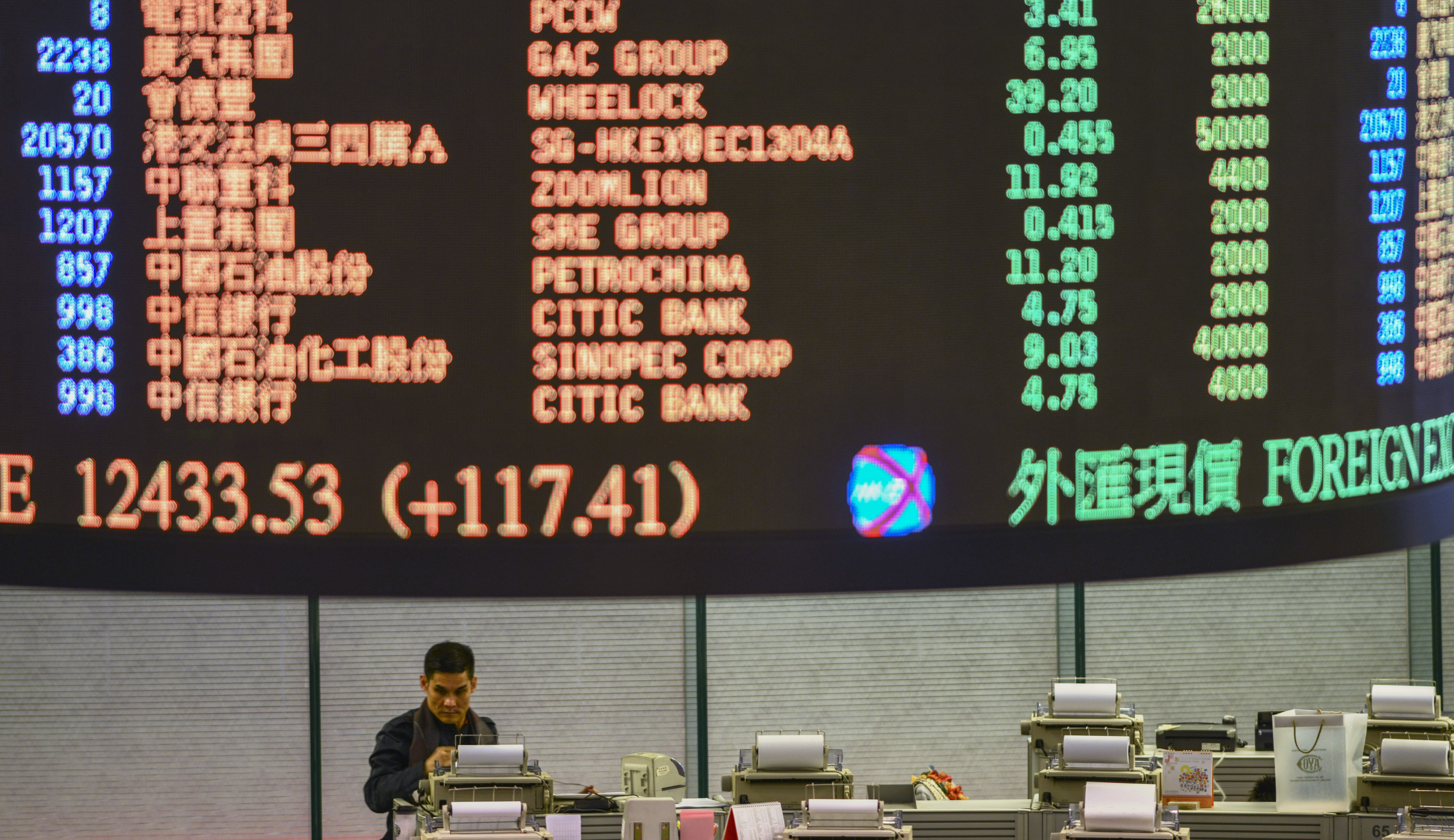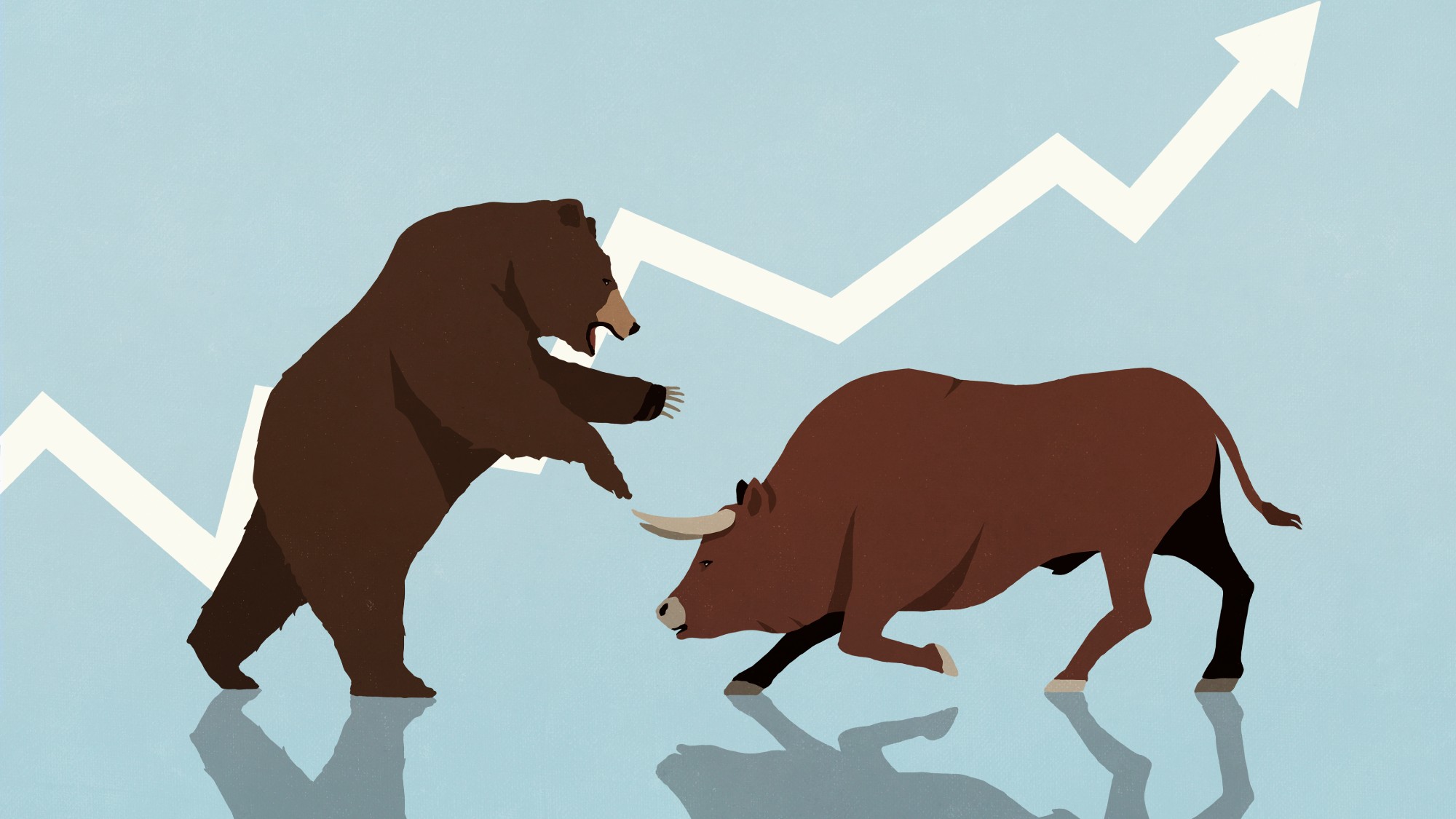Best investments 2015: why China looks good
If you can keep your nerve, investing in Asia’s red dragon can bring sizeable rewards

A free daily email with the biggest news stories of the day – and the best features from TheWeek.com
You are now subscribed
Your newsletter sign-up was successful
Last year saw the biggest stockmarket listing in history. Alibaba, the giant online retailer, came to market valued at more than $230bn, making its founder, Jack Ma, China’s wealthiest man. If investors ever needed reminding that China is a land of vast potential opportunities amid all the risks, this was it.
And there are lots of risks to investing in China, no doubt about it. Corporate governance is shaky (although as Tesco amply demonstrates, there’s no guarantee of top- notch governance even in developed markets). The country’s economic growth is slowing down, something that has concerned the government. And there’s a gradually deflating property bubble whose impact on the wider economy no one is entirely confident of. In all, China is in the middle of a tricky transition – its growth so far has been based on making cheap goods for other countries, and on spending money on building roads, cities and shopping malls that there is not yet sufficient demand for. Now China has to justify that spending by moving towards being a more consumer- oriented economy – not an easy thing to do, particularly when the government is still trying to control so many elements of the transition.
However, while China has its challenges, it is moving in the right direction. A batch of reforms at the end of last year, which came as part of its next five-year plan, showed a desire to improve efficiency, governance, and the role of markets in the economy. Part of that involves China trying to become more attractive to foreign investors. And ultimately that means creating an environment in which investors can have confidence.
The Week
Escape your echo chamber. Get the facts behind the news, plus analysis from multiple perspectives.

Sign up for The Week's Free Newsletters
From our morning news briefing to a weekly Good News Newsletter, get the best of The Week delivered directly to your inbox.
From our morning news briefing to a weekly Good News Newsletter, get the best of The Week delivered directly to your inbox.
Better yet – and most importantly – Chinese stocks are cheap. The Chinese market is trading on a cheap-looking cyclically adjusted price-to-earnings (Cape) ratio of under 12, according to US fund manager Mebane Faber. (The Cape ratio takes account of the ups and downs of the economy, so giving a better picture of how cheap or expensive a market is.) Meanwhile, a potential trigger for more foreign investor interest is that China has opened up its mainland stock exchange – the Shanghai Stock Exchange – to overseas investors via the Hong Kong stock exchange (the project is called the Shanghai-Hong Kong Stock Connect). In short, at a time when lots of other global markets look unappealingly expensive, China looks a good option for at least a small portion of your portfolio.
How to invest in China
You can invest in China through a cheap exchange-traded fund such as the iShares FTSE/Xinhua China 25 ETF (LSE: FXC). Another option is to buy in using an actively-managed fund. When it comes to active funds, we favour using investment trusts where possible – one option is the JP Morgan Chinese investment trust (LSE: JMC), which trades on a discount of around 10% to its net asset value.
Saving for children
A free daily email with the biggest news stories of the day – and the best features from TheWeek.com
China is the sort of long-term bet that could look like a very smart buy-and-hold investment, and that could make it a good candidate for a portfolio held on the behalf of a child. If you want to invest for your children, there are two obvious financial ‘wrappers’ that you could use. A self-invested personal pension (Sipp) is one option. You can invest up to £3,600 a year (gross) into a Sipp on the behalf of a child. In effect, that means paying in £2,880 in total, as the government contributes 20% tax relief. As with any Sipp, the funds cannot be accessed until the child turns 55, so it’s very much a long-term investment.
If you don’t want to lock up the money for quite that long, another option is a junior individual savings account (Jisa). Despite the name, Jisas are quite different to adult Isas – you can shelter up to £4,000 a year (in the current tax year) with the same tax advantages as an Isa (see page 8 for more). But unlike adult Isas, the money is locked up until the child turns 18. And be aware that once they do turn 18, they will have complete control over the money themselves. At that point, if they want to blow it onagapyear,anewcarorawild party rather than the university fees or housing deposit you had in mind, you’ll have to rely on your years of good parenting to dissuade them. If, looking back at your own priorities as an 18-year- old, you’re rather less confident of their good sense prevailing, you might be best to earmark some money on their behalf in an Isa of your own.
-
 How to Get to Heaven from Belfast: a ‘highly entertaining ride’
How to Get to Heaven from Belfast: a ‘highly entertaining ride’The Week Recommends Mystery-comedy from the creator of Derry Girls should be ‘your new binge-watch’
-
 The 8 best TV shows of the 1960s
The 8 best TV shows of the 1960sThe standout shows of this decade take viewers from outer space to the Wild West
-
 Microdramas are booming
Microdramas are boomingUnder the radar Scroll to watch a whole movie
-
 What are the best investments for beginners?
What are the best investments for beginners?The Explainer Stocks and ETFs and bonds, oh my
-
 Received a windfall? Here is what to do next.
Received a windfall? Here is what to do next.The Explainer Avoid falling prey to ‘Sudden Wealth Syndrome’
-
 How to invest in the artificial intelligence boom
How to invest in the artificial intelligence boomThe Explainer Artificial intelligence is the biggest trend in technology, but there are fears that companies are overvalued
-
 What’s the difference between a bull market and bear market?
What’s the difference between a bull market and bear market?The Explainer How to tell if the market is soaring or slumping.
-
 Is it a good investment to buy a house?
Is it a good investment to buy a house?The Explainer Less young people are buying homes, opting to rent and invest in the stock market instead
-
 What is day trading and how risky is it?
What is day trading and how risky is it?the explainer It may be exciting, but the odds are long and the risks high
-
 What to know about investing in ETFs
What to know about investing in ETFsThe Explainer Exchange-traded funds can be a great choice for beginners
-
 Retail investors drive a flurry of IPOs
Retail investors drive a flurry of IPOsFeature After years of slowness, companies like Klarna and Gemini are reviving the IPO market